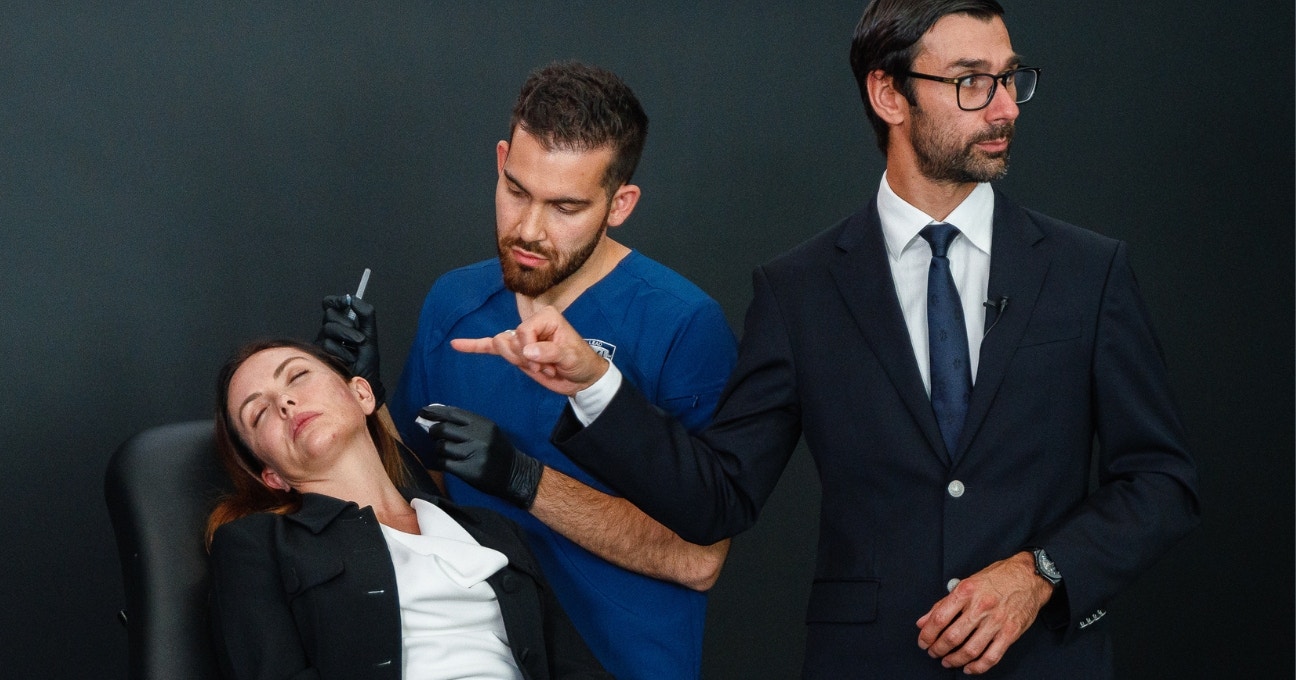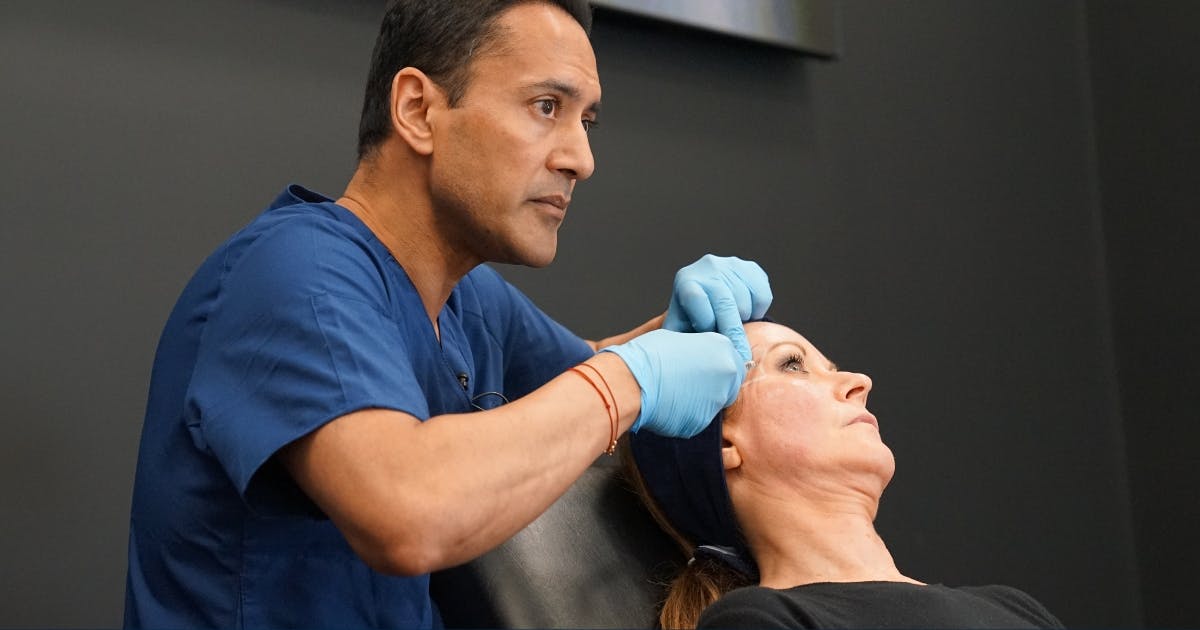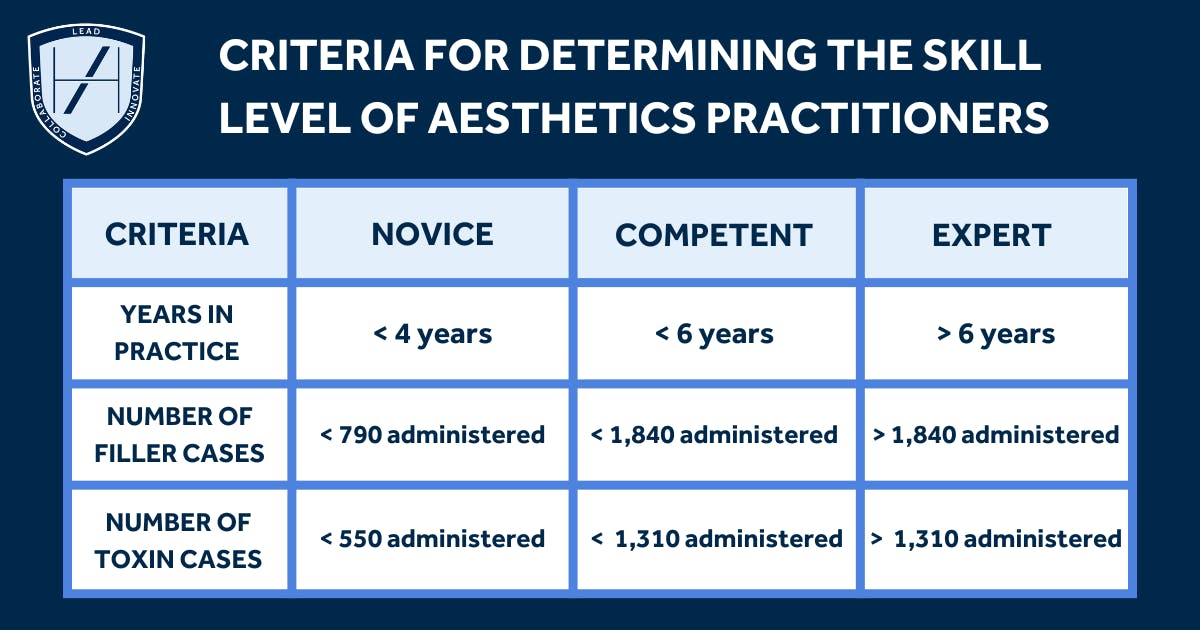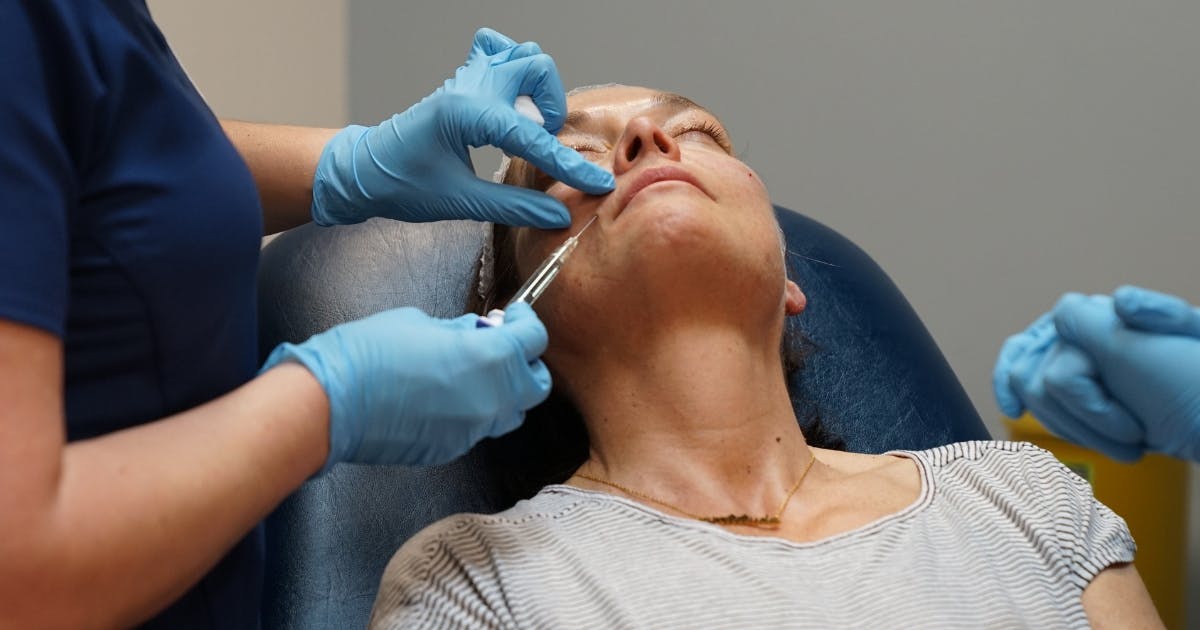How to Tell When You're an Expert Aesthetics Practitioner

Do you know how to tell when you’re an expert aesthetics practitioner? Groundbreaking research from Harley Academy and a team of aesthetic medicine luminaries has made this possible.
The term aesthetic medicine ‘expert’ is widely overused, despite its use being regulated in the UK. But there has never been a framework for determining levels of expertise within the medical aesthetics sector - until now.

Are you a novice, competent or expert aesthetics practitioner?
Our research, published in the prestigious Aesthetic Surgery Journal in April 2024, has identified quantifiable goals for each stage of being an aesthetics practitioner. These are:
- Novice
- Competent
- Expert.
According to our findings, the following are the levels you need to attain to class yourself as a novice, competent or expert aesthetic practitioner…
You are a novice aesthetic practitioner…
If you have the following experience, you’d be classed as a novice cosmetic injector:
- Fewer than 4 years in practice
- Administered less than 790 filler treatments
- Less than 550 toxin treatments administered.
You are a competent aesthetics practitioner…
If you meet the following criteria, you’d be classed as a competent aesthetic practitioner:
- Fewer than 6 years in practice
- Administered less than 1,840 filler treatments
- Less than 1,310 toxin treatments administered.
You are an expert aesthetics practitioner…
If you have the following experience, you would be classed as an expert aesthetics practitioner:
- More than 6 years in practice
- Administered more than 1,840 filler treatments
- More than 1,310 toxin treatments administered.

What methodology was used to establish these classifications?
The criteria used to determine each of these classifications was determined following a novel aesthetic medicine education study. This was carried out by a number of aesthetics experts, including Harley Academy, Professor Sebastian Cotofana and Dr Arthur Swift.
A questionnaire comprising 58 questions “focusing on professional data, the perceived difficulty of injection, and risk for teh occurrence of adverse events for specific facial regions in soft tissue filler and toxin injections” was assembled in 2023. This was then completed by 386 aesthetic practitioners internationally.
Once the completed questionnaires were submitted, the data from this research was carefully examined. Findings were recorded and categories became clear once these were set out.
The team was able to establish the existence of these three categories and their requirements, from there. As the paper states, “Regardless of medical specialty and experience level, averages of 3.85 (1.8) years, 786.4 (2,628) filler injections and 549.9 (1,543) toxin injections were estimated to progress from novice to advanced injector, while averages of 6.10 (3.7) years, 1,842 (4,793) filler injections and 1,308.5 (3.363) toxin injections were estimated to advance from advanced to expert injector.”
This data was used to “establish an educational framework in aesthetic medicine by defining the progression from novice to competent and expert injector levels”.
Additional findings included developing better understandings of which treatment areas are best suited to each category of aesthetic practice. This involved pinpointing which have the “greatest risk for the occurrence of adverse events” as well as the zones where it’s “most difficult to achieve a a perfect aesthetic outcome”.
You can find out more about this aesthetic medicine education research in our previous article. This is just the first stage in defining education competencies - more work is underway!

How do you progress as an aesthetics practitioner?
There are two key areas that will help you to progress as a medical aesthetics practitioner. These are education and experience.
Aesthetic medicine education
The education component obviously covers undertaking aesthetics courses and really honing your skills. However, it also refers to reading research papers, attending lectures, webinars and conferences. Networking and learning from your peers cannot be discounted. This also helps you to build your support system - something every injector needs, especially the solo practitioners!
Always ensure your knowledge is evidence-based, well-rounded and up-to-date.
Even if you’ve completed appropriate aesthetic medicine qualifications, you may lack confidence or want to more finely tune specific treatment approaches.
Enhancing your learning in a way that suits you
If you’re looking to concentrate on a certain zone, sharpen your practical abilities through supervised, mentored practice, such as Injectables Masterclasses. Alternatively, if you’ve completed a foundation botox and/or filler aesthetics course, you could consider upgrading your learning with a more in-depth qualification. Consider taking an Ofqual-regulated, postgraduate equivalent qualification, such as the Level 7 Diploma in Botox & Dermal Fillers.
As all healthcare professionals know, medical specialities require a commitment to lifelong learning. Aesthetic medicine is certainly no different! In fact, as it’s such a new field, developments, treatments and approaches can change relatively rapidly. This means you need to keep on top of your education to ensure you’re refining and revising your techniques accordingly.
With the forthcoming aesthetics regulation for England likely to set minimum standards for education in order to gain a licence to practice, being ahead of the curve is no bad thing!
Respect that you may not know what you don’t yet know
An important aspect is to understand there are things that you don’t know that you don’t yet know. Overconfidence in an injector is not a good sign; being willing to admit there is a lot you don’t know and commit to continual learning is the key to evolving your practice.
Experience in aesthetic practice
Never underestimate the power of regular clinical practice. This allows you to put all your theory and training into practice. It also polishes your patient communication skills - a vital art every aesthetic practitioner should perfect. The more you ‘do’, the more you learn.
You’re able to get the insurance you need to practice without supervision following successful completion of your Foundation Training in Botox & Dermal Filler course. Whilst you are able to start your practice at this point, it’s unlikely you’ll feel sufficiently confident to practice the full spectrum of cosmetic procedures. Especially when you’re practising without guidance and treating patients solo for the first time.
In addition to your practical consulting, assessing and injecting skills, there are business protocols you’ll need to conduct, perhaps for the first time. These include discussing prices and taking payment - something many aesthetics practitioners find difficult at first. Remembering all the different aspects that make up an appointment can split your focus. This can leave you nervous when you first start out, especially if you offer a wide range of treatments from the outset.
Limit your offering when first starting out in aesthetic medicine
Consider offering a limited treatment menu when first starting out in medical aesthetics. This will allow you to build you confidence gradually as you truly familiarise yourself with being an aesthetic practitioner. Most injectors start by offering upper face toxin only. This is a relatively straightforward treatment which also has a high patient satisfaction rate.
Don’t feel pressured to offer everything all at once. Once you’ve got your first few patients, listening to their goals and treatment interests can help you to develop your practice. That way, you’ll also have an audience you’ve already built a rapport with, who are ready to try your new services!
If you find you aren’t comfortable practising without supervision, commit to medical aesthetics training that includes one-to-one mentoring. This is such a valuable investment in your career and promotes expedited understanding. By undertaking this type of hands-on learning you can supercharge your comprehension. You’ll also get the space to ask questions from experienced mentors, whist treating patients in a clinical environment, mirrorring your own practice.
At Harley Academy, our clinical trainers are all practising aesthetics specialists who can give you their own real-world insights. They’ve been in your shoes so can relate and empathise, as well as arming you with their best advice. Whether you want to debrief on a case you’d like their opinion on, or would like honest appraisals of your injection techniques - whatever your query, they’re ready to help.

Putting together a career plan for achieving expert injector status
Our research project aims to provide clear pathways for progression in aesthetic medicine. It’s often clear how you get started - as a healthcare professional, you can become an aesthetics practitioner by undertaking the requisite foundation training which allows you to gain insurance to practice aesthetics. What can be less clear is what standard is your service now and how can you develop into an aesthetics expert?
Offering this clarity and the ability to progress, using an evidence-based approach, is something Harley Academy is passionate about. We can tailor the training aspects of your medical career development plan and help you to put this together.
If you’re considering elevating your aesthetic medicine education, or if you’d like to plan your move into medical aesthetics right from the start, let us help.
Book a free 15 minute discovery session call with our support team. They’ll listen to your goals and requirements, then set you up with recommendations you can use to form your career plan. Ask all the questions you need to get going - there’s no such thing as a silly question and it’s unlikely you’ll ask anything we haven’t heard before!
Our support consultants have assisted thousands of medical professionals in achieving their aesthetics career goals. Let them guide you, too - there’s no hard sell, just honest advice. Access our wealth of experience as the largest provider of postgraduate aesthetic medicine education in the UK, with the most graduates. We want to see you succeed and support you in your journey towards becoming a proud expert aesthetics practitioner!
Information correct at the time of publication
Download our full prospectus
Browse all our injectables, dermal fillers and cosmetic dermatology courses in one document
By submitting this form, you agree to receive marketing about our products, events, promotions and exclusive content. Consent is not a condition of purchase, and no purchase is necessary. Message frequency varies. View our Privacy Policy and Terms & Conditions
Attend our FREE open evening
If you're not sure which course is right for you, let us help
Join us online or in-person at our free open evening to learn more
Our Partners













STAY INFORMED
Sign up to receive industry news, careers advice, special offers and information on Harley Academy courses and services

